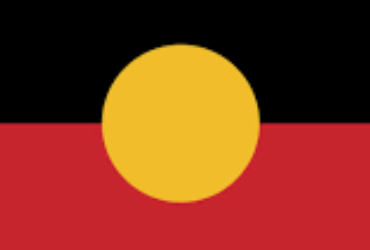



Workskil Helps Meeka Break Down Barriers
[supplied by Danielle Gordon]

Meeka. Image: supplied
First Nations and young job seekers are at the highest risk of homelessness, according to a new report on Australia’s employment market. Australia’s largest not-for-profit employment services provider, Workskil Australia, has released its latest Work Watch report.
The report reveals that more than half of the registered job seekers facing homelessness are either First Nations people and/or 25 years old or younger.
“Being First Nations and young represents the highest risk category for homelessness among registered job seekers,”
Workskil Australia CEO Nicole Dwyer said. More than one in three (36%) registered job seekers facing homelessness are First Nations people while 20% are aged 25 years or younger.
The deeply concerning insights come as disadvantaged job seekers must also now navigate an even tougher path to employment. Workskil Australia’s Work Watch report showed total new hires among its registered job seekers fell 10.3% in the December quarter.
“With the employment market tightening, it is the most vulnerable and disadvantaged job seekers who are hit the hardest,” Ms Dwyer said.
“Homelessness and unemployment can create a vicious circle that’s hard to escape without targeted support.”
Ms Dwyer said while overall levels of homelessness among job seekers was steady compared with the previous quarter, it remained too high at 16.1%.
“We know that the severe lack of affordable accommodation and the rental squeeze are pushing job seekers out into the streets. Landing and holding down a job is almost impossible if you don’t have a safe and secure home,” she said.
Under its Home2Work program launched last year, Workskil Australia has purchased several 1-2 bedrooms homes in Northern Adelaide and Southern Perth which are made available to eligible job seekers at below market rents.
“Through our Home2Work program, we aim to break down one of the biggest barriers facing disadvantaged job seekers and help them get back on the path to sustainable employment. However, it’s really just scratching the surface of a nationwide crisis,” Ms Dwyer said.
The Work Watch report outlines the experiences of 50,000 registered job seekers with Workskil Australia including a large representation of young and older job seekers, First Nations Australians, migrants, refugees and those identifying as having a disability.
While most industries reduced hiring in the December quarter, Retail rose 9.9% with more hires of sales assistants and bar attendants reflecting high demand for casual roles.
The Trades & Services industry kept its position as the biggest job creator, accounting for 30.5% of total hires, despite a 27% fall in hires of builder’s labourers largely due to shutdowns over the holiday period.
Stable housing not only provided Meeka with a roof over her head – it opened doors to a new life she never thought possible. The 20-year-old, who left school in year 11, had been staying “on and off” with family when she engaged with Workskil Australia. Leaving a troubled household, Meeka described her teenage years as “rough”.
“I’d been staying with family on and off for a while,” she said. “I couldn’t think long-term, and it was hard to commit to study or a career path. It just wasn’t sustainable.”
Meeka was supported by Workskil Australia’s in-house counselling service before gaining access to housing through the organisation’s Home2Work program. She also accessed support to help her budget and gain independent living skills including cooking and cleaning.
“I didn’t know how much I needed stable housing and how much it would help me grow,” she said. “It changed a lot for me.”
When a Fly-In Fly-Out employment opportunity emerged with industrial services firm Contract Resources, Meeka grabbed it with both hands.
“I would never have been able to consider FIFO before without the housing,” she said. “It has opened my eyes to a whole new world and new possibilities.”
For the past few months, Meeka has been based at Contract Resources’ equipment workshop in Jandakot, Perth, where she has gained qualifications to work in confined spaces, at heights and undertake atmosphere testing.
With her training complete, Meeka is about to start travelling to Karratha in the FIFO role. As an industrial services worker, she will mainly work at onshore oil and gas sites with opportunities to go offshore in the future.
“I’ve been doing a lot of training and preparation so I know what to expect and what the site is like,” she said. “I just want to get into it.”
LATEST NEWS

Hidden potential of native resources to be unlocked at CQU symposium [supplied by Greg Chapman] Central Queensland’s Indigenous leaders, academics and businesses will converge on CQUniversity Rockhampton to discuss the future potential of Australia’s rich native resources in food and medicines.

Traditional Owners slam NT Government for 'rushed' changes to Sacred Sites Act [Rudi Maxwell, NITV] Traditional Owners in the Northern Territory have vented their frustration at the government's plan to fast-track changes to the Aboriginal Sacred Sites Act, with one land council saying the government is treating them like children.

https://www.abc.net.au/news/2025-03-28/aboriginal-womens-art-festival/105098602?utm_campaign=abc_news_web&utm_content=link&utm_medium=content_shared&utm_source=abc_news_web







%20(1920%20x%20640%20px)%20(728%20x%20180%20px).png)
